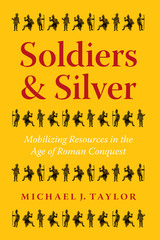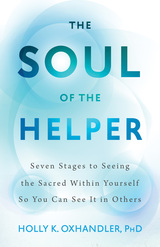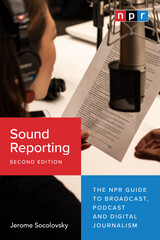116 scholarly books by Omnidawn and 8
start with C
116 scholarly books by Omnidawn and 8
116 scholarly books by Omnidawn
8 start with C start with C
8 start with C start with C
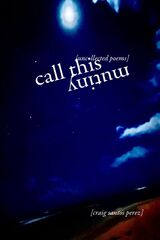
Call This Mutiny
[uncollected poems]
Craig Santos Perez
Omnidawn, 2024
A collection of previously published poems by renowned National Book Award-winning Chamoru poet Craig Santos Perez.
The seventh book from award-winning Chamoru author Craig Santos Perez, Call This Mutiny brings together poems that were originally published in journals and anthologies from 2008 to 2023. Throughout these selected poems, Perez offers critical explorations of native cultures, decolonial politics, colonial histories, and the entangled ecologies of his homeland of Guam, his current home of Hawaiʻi, and the larger Pacific region in relation to the Global South and the Indigenous Fourth World. Perez’s poetry draws on the power of storytelling to share Indigenous history and culture and to offer healing from the trauma of colonialism and injustice. As he writes, “If we can write the ocean, we will never be silenced.”
The seventh book from award-winning Chamoru author Craig Santos Perez, Call This Mutiny brings together poems that were originally published in journals and anthologies from 2008 to 2023. Throughout these selected poems, Perez offers critical explorations of native cultures, decolonial politics, colonial histories, and the entangled ecologies of his homeland of Guam, his current home of Hawaiʻi, and the larger Pacific region in relation to the Global South and the Indigenous Fourth World. Perez’s poetry draws on the power of storytelling to share Indigenous history and culture and to offer healing from the trauma of colonialism and injustice. As he writes, “If we can write the ocean, we will never be silenced.”
[more]
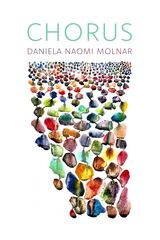
CHORUS
Daniela Naomi Molnar
Omnidawn, 2022
Poems that incorporate multiple voices to embrace fragmentation, discord, and plurality.
At a time of simultaneous isolation and interconnection, this book is an inquiry into the edges of the self. Pushing back on capitalist messages of individuality, CHORUS instead seeks the multifaceted self that engages with the radical diversity that characterizes any healthy ecosystem or society. Moving between a remote canyon in New Mexico, the Pacific Northwest, New York City, the virtual world, the past, and the unstable future, the author asks, “Whose afterimage am I?”
The sprawling, celebratory, mourning chorus of this book is the sum of many voices; the words of other writers, poets, and artists are interwoven with the author’s words. This is a celebration of language’s capacity to supersede bodily limits, mortality, and existential loneliness. Daniela Naomi Molnar’s chorus encompasses violence, love, empathy, fear, a burning planet, a pandemic, heartbreak, desire, joy, and grief. Rather than seeking resolution, these poems look through the lens of a fragmented self, dwelling in plurality, discord, and harmony.
CHORUS is the winner of Omnidawn’s 1st /2nd Book Prize, judged by Kazim Ali.
At a time of simultaneous isolation and interconnection, this book is an inquiry into the edges of the self. Pushing back on capitalist messages of individuality, CHORUS instead seeks the multifaceted self that engages with the radical diversity that characterizes any healthy ecosystem or society. Moving between a remote canyon in New Mexico, the Pacific Northwest, New York City, the virtual world, the past, and the unstable future, the author asks, “Whose afterimage am I?”
The sprawling, celebratory, mourning chorus of this book is the sum of many voices; the words of other writers, poets, and artists are interwoven with the author’s words. This is a celebration of language’s capacity to supersede bodily limits, mortality, and existential loneliness. Daniela Naomi Molnar’s chorus encompasses violence, love, empathy, fear, a burning planet, a pandemic, heartbreak, desire, joy, and grief. Rather than seeking resolution, these poems look through the lens of a fragmented self, dwelling in plurality, discord, and harmony.
CHORUS is the winner of Omnidawn’s 1st /2nd Book Prize, judged by Kazim Ali.
[more]
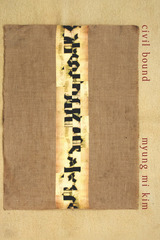
Civil Bound
Myung Mi Kim
Omnidawn, 2019
In Civil Bound, Myung Mi Kim turns a keen ear to language as the mechanism by which society operates. The poems engage multiple methods to make sense of this pervasive tool, its powers, nuances, and influences over the structure of our civilizations. Through investigations of ecology, capitalism, military powers, colonialism, and supremacy, the book uncovers patterns in the ways that language is active in perpetuating inequality and binding its subjects to the will of those in positions of authority. In questioning systems of oppression, the poems also offer the hope of forging new paths through the connecting power of language. Examining our participation in social contracts, communal goals, and human desires, Kim’s poems encourage us to salvage language as a means of connection that binds us in respect and commitment to our fellow human beings.
[more]

Clay
Martha Ronk
Omnidawn, 2025
Poetry that finds meaning and connection in the process of creating pottery from clay.
The poems in Clay look to the process of forming clay on a potter’s wheel to examine our sense of touch and texture, emptiness, fragility, and the nature of time. Martha Ronk moves through the steps of creating a pot that must be formed, dried, bisque-fired, glazed, and fired again. This practice is paralleled in Ronk’s process-oriented language that addresses how we read texture and color, the ways history and landscapes appear in glazes, Mimbres bowls that covered the faces of the dead, and Giorgio Morandi’s still life paintings of ceramic forms.
For Ronk, pottery raises questions about the value of repetition, inevitable failure, and how we may become one with matter. As the potter’s hands ache and age, the bowl seems to age as it slumps or breaks. Clay includes observations from other potters and writers as well as small photographs of pots.
The poems in Clay look to the process of forming clay on a potter’s wheel to examine our sense of touch and texture, emptiness, fragility, and the nature of time. Martha Ronk moves through the steps of creating a pot that must be formed, dried, bisque-fired, glazed, and fired again. This practice is paralleled in Ronk’s process-oriented language that addresses how we read texture and color, the ways history and landscapes appear in glazes, Mimbres bowls that covered the faces of the dead, and Giorgio Morandi’s still life paintings of ceramic forms.
For Ronk, pottery raises questions about the value of repetition, inevitable failure, and how we may become one with matter. As the potter’s hands ache and age, the bowl seems to age as it slumps or breaks. Clay includes observations from other potters and writers as well as small photographs of pots.
[more]
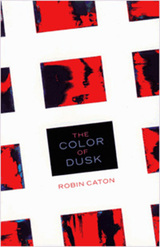
The Color of Dusk
Robin Caton
Omnidawn, 2001
In The Color of Dusk, Robin Caton bridges traditions of secular, religious, modernist, and post modernist writing to encounter word at its most unsettling, provocative, and urgent. At times conversational, elliptic, meditative, minimalist, expansive, Caton's poems are unified by an insistence to reach, with language, through language, to turn words toward what is ever outside their ability to name.
[more]
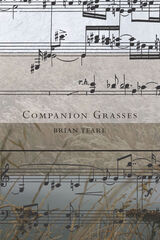
Companion Grasses
Brian Teare
Omnidawn, 2013
What does it mean to dwell in a place? These adventurous poems go on foot in search of answers. Walking the cities, coasts, forests and mountains of Northern California and New England, they immerse themselves in the specifics of bioregion and microclimate, and take special note of the cycle of death and rebirth that plays out dramatically in California’s chaparral and grasslands. Inspired by Transcendentalism, Companion Grasses sees the sacred in the workings of the material world, but its indebtedness to the ecological tradition of California poets like Gary Snyder and Brenda Hillman means that it also unearths such evidence in the sensual materiality of words themselves. Both ecologically rich landscapes and highly rhythmic inscapes, these poems set seasonal and human dramas side-by-side, wresting an original, signature music from the meeting of site and sight. In pursuing an aesthetics situated in place, they compose an ethics of what it means to be a human companion to the natural world: “What we love, how we care for it,/is where we live.”
[more]
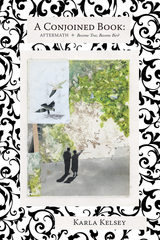
A Conjoined Book
Aftermath and Become Tree, Become Bird
Karla Kelsey
Omnidawn, 2014
Karla Kelsey’s A Conjoined Book hinges together two texts—Aftermath and Become Tree, Become Bird—to create a meditation on the nature of aboutness. Aftermath unfolds after an unnamed ecological/emotional fracture, creating a landscape of rift where the “I” imagines herself as “she,” and perceptions weave into memory and fiction. Become Tree, Become Bird grafts the Brothers Grimm’s The Juniper Tree to the body of Aftermath, reworking what has splintered into a variation of fairy tale. Throughout A Conjoined Book, Kelsey’s condensed imagery, shifting viewpoints, and interwoven formal structures set lyric and narrative a-shimmer. Blending experiment and tradition, this book will appeal to a wide audience interested in seeing how fairy tale, philosophy, ecology, narratology, history. As Julie Carr writes: “horror, elegy, mystery, fairy tale, lyric, treatise, fragment meet one another with all their intensities of emotion and intellect.”
[more]
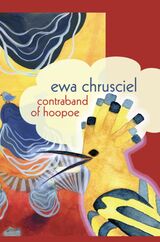
Contraband of Hoopoe
Ewa Chrusciel
Omnidawn, 2014
Contraband of Hoopoe explores issues of dislocation, immigration and desire. Chrusciel invents a poetics of smuggling as she crosses national, historical and linguistic borders. The migratory narrative is distinctly errant, haunted by a childhood lived under a Communist regime, by the austerity of Eastern block politics, and by the possibility of discovering a fleeting language to carry the seeds of illicit revelation, spiritual transformation, and insight. The book elevates smuggling to a noble art, recording how the Jewish people were hidden and transported during the Holocaust. Chrusciel tracks a series of historical objects and secret messages that immigrants throughout history have been sneaking through customs, past border checkpoints, and across the seas.
[more]
READERS
Browse our collection.
PUBLISHERS
See BiblioVault's publisher services.
STUDENT SERVICES
Files for college accessibility offices.
UChicago Accessibility Resources
home | accessibility | search | about | contact us
BiblioVault ® 2001 - 2024
The University of Chicago Press



